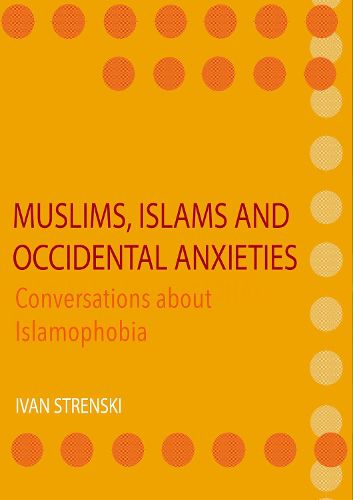Readings Newsletter
Become a Readings Member to make your shopping experience even easier.
Sign in or sign up for free!
You’re not far away from qualifying for FREE standard shipping within Australia
You’ve qualified for FREE standard shipping within Australia
The cart is loading…






This title is printed to order. This book may have been self-published. If so, we cannot guarantee the quality of the content. In the main most books will have gone through the editing process however some may not. We therefore suggest that you be aware of this before ordering this book. If in doubt check either the author or publisher’s details as we are unable to accept any returns unless they are faulty. Please contact us if you have any questions.
Muslims, Islams and Occidental Anxietiesdeconstructs our common prejudices about both the compatibility and incompatibility of Muslim and Western civilizations. Rather than reinforcing the well-meant, but misinformed, opinion that the religions all fundamentally teach identical values, we identify what seem different distinctive Muslim goods. Rather than offering the facile moral choice between an Islam either all good or all bad, we argue the case for pluralism derived from Sir Isaiah Berlin. In many cases, Islam thus represents a distinctive system of alternative ethical and religious goods to those valued in the West. In other cases, differences will remain different and unresolved. Far from necessarily threatening Western moral and religious identity, we explore how the alternative goods Islam offers the West can enrich our notions of what constitutes the good, even to the extent of reviving or enlivening certain Western religious practices.
Along with instructional guidelines for classroom use, the book in informed by the powerful and intellectually rigorous device of investigative, empathetic dialogue or conversation, as articulated by MIT’s Sherry Turkle and Oxford’s Theodore Zeldin, respectively. This form of dialogue steers clear of the didactic mode and instead recovers the open models of philosophical dialogues pioneered by Plato, Socrates, and the tolerant Renaissance humanists, such as Erasmus and Jean Bodin.
$9.00 standard shipping within Australia
FREE standard shipping within Australia for orders over $100.00
Express & International shipping calculated at checkout
This title is printed to order. This book may have been self-published. If so, we cannot guarantee the quality of the content. In the main most books will have gone through the editing process however some may not. We therefore suggest that you be aware of this before ordering this book. If in doubt check either the author or publisher’s details as we are unable to accept any returns unless they are faulty. Please contact us if you have any questions.
Muslims, Islams and Occidental Anxietiesdeconstructs our common prejudices about both the compatibility and incompatibility of Muslim and Western civilizations. Rather than reinforcing the well-meant, but misinformed, opinion that the religions all fundamentally teach identical values, we identify what seem different distinctive Muslim goods. Rather than offering the facile moral choice between an Islam either all good or all bad, we argue the case for pluralism derived from Sir Isaiah Berlin. In many cases, Islam thus represents a distinctive system of alternative ethical and religious goods to those valued in the West. In other cases, differences will remain different and unresolved. Far from necessarily threatening Western moral and religious identity, we explore how the alternative goods Islam offers the West can enrich our notions of what constitutes the good, even to the extent of reviving or enlivening certain Western religious practices.
Along with instructional guidelines for classroom use, the book in informed by the powerful and intellectually rigorous device of investigative, empathetic dialogue or conversation, as articulated by MIT’s Sherry Turkle and Oxford’s Theodore Zeldin, respectively. This form of dialogue steers clear of the didactic mode and instead recovers the open models of philosophical dialogues pioneered by Plato, Socrates, and the tolerant Renaissance humanists, such as Erasmus and Jean Bodin.